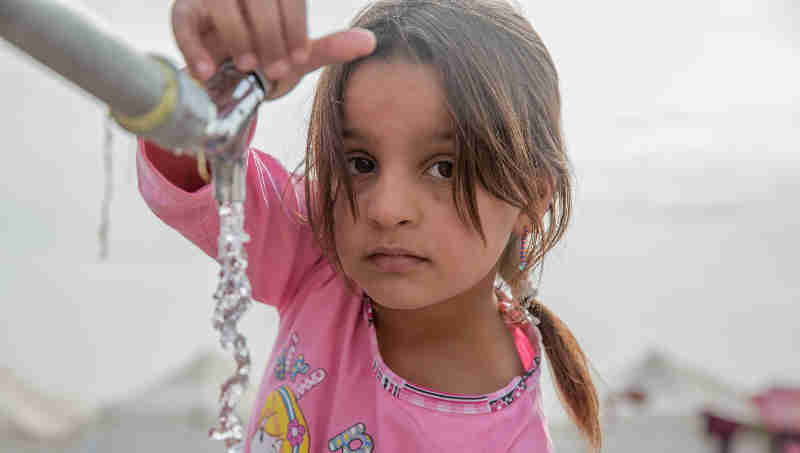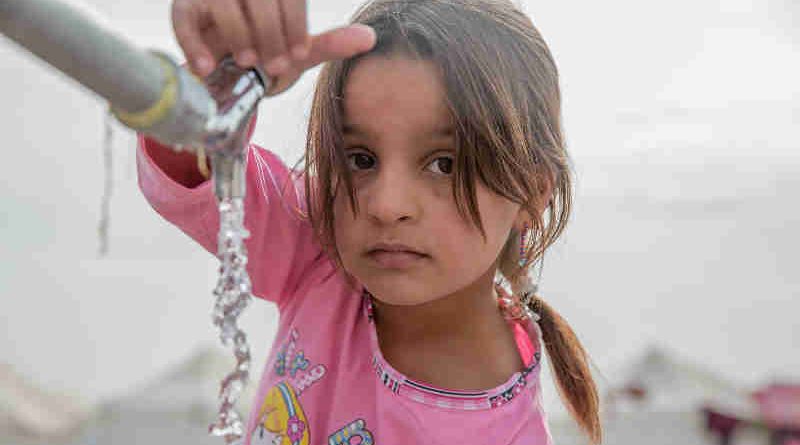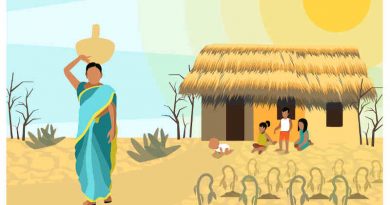2 Billion People Do Not Have Direct Access to Water: Report

The report provides decision-makers with knowledge and tools to formulate and implement sustainable water policies.
The United Nations World Water Development Report (WWDR) 2021, published by UNESCO on behalf of UN-Water, shows that the inability to recognize the value of water is the main cause of water waste and misuse.
Despite the difficulty of attributing an objective and indisputable value to a resource which is fundamental to life, it seems necessary to examine water’s various dimensions in order to understand the various aspects of its “value”. This is especially true in times of growing scarcity and against the backdrop of population growth and climate change.
“Water is our most precious resource, a ‘blue gold’ to which more than 2 billion people do not have direct access. It is not only essential for survival, but also plays a sanitary, social and cultural role at the heart of human societies,” said Audrey Azoulay, UNESCO Director-General.
According to a new analysis released by UNICEF, more than 1.42 billion people, including 450 million children, live in areas of high, or extremely high, water vulnerability. This means that 1 in 5 children worldwide does not have enough water to meet their everyday needs.
This year’s WWDR addresses the question of the value of water. It shows that waste and careless use stems from the fact we all too often think of water exclusively in terms of its cost price, without realizing its tremendous value, which is impossible to price.
The report asserts that the value of water is incalculable and limitless, since life cannot exist without it and it has no replacement. This is perhaps best illustrated by the widespread enthusiasm for the idea that traces of water can be found on Mars, or the fact that we think of water and life as interchangeable when studying other planets.
The report emphasizes the great need to broaden the notion of the “value” of water stressing that we cannot confuse the concepts of “price”, “cost” and “value”. Although price and cost are potentially quantifiable, the concept of “value” is much wider and includes social and cultural dimensions.
Indeed, according to the report, water is not like other raw materials which can be treated as commodities and openly traded through stock markets. The challenge is to determine a value for a resource whose importance varies in different areas of economic activity, at different times, without forgetting to take into account its social, environmental and cultural dimensions.
Similarly, it is a fact that providing universal access to safe drinking water and sanitation in 140 low- and middle-income countries would cost $114 billion per year, whereas the multiple social and economic benefits of safe water are difficult to evaluate.
These issues are at the heart of this year’s edition of the United Nations World Water Development Report (WWDR), UN-Water’s flagship publication on water and sanitation issues, which focuses on a different theme every year.
The report is published by UNESCO on behalf of UN-Water and its production is coordinated by the UNESCO World Water Assessment Programme. It gives insight into the main trends concerning the state, use and management of freshwater and sanitation, based on work by members and partners of UN-Water.
Launched in conjunction with World Water Day, the report provides decision-makers with knowledge and tools to formulate and implement sustainable water policies. It also offers best practice examples and in-depth analyses to stimulate ideas and actions for better stewardship in the water sector and beyond.




